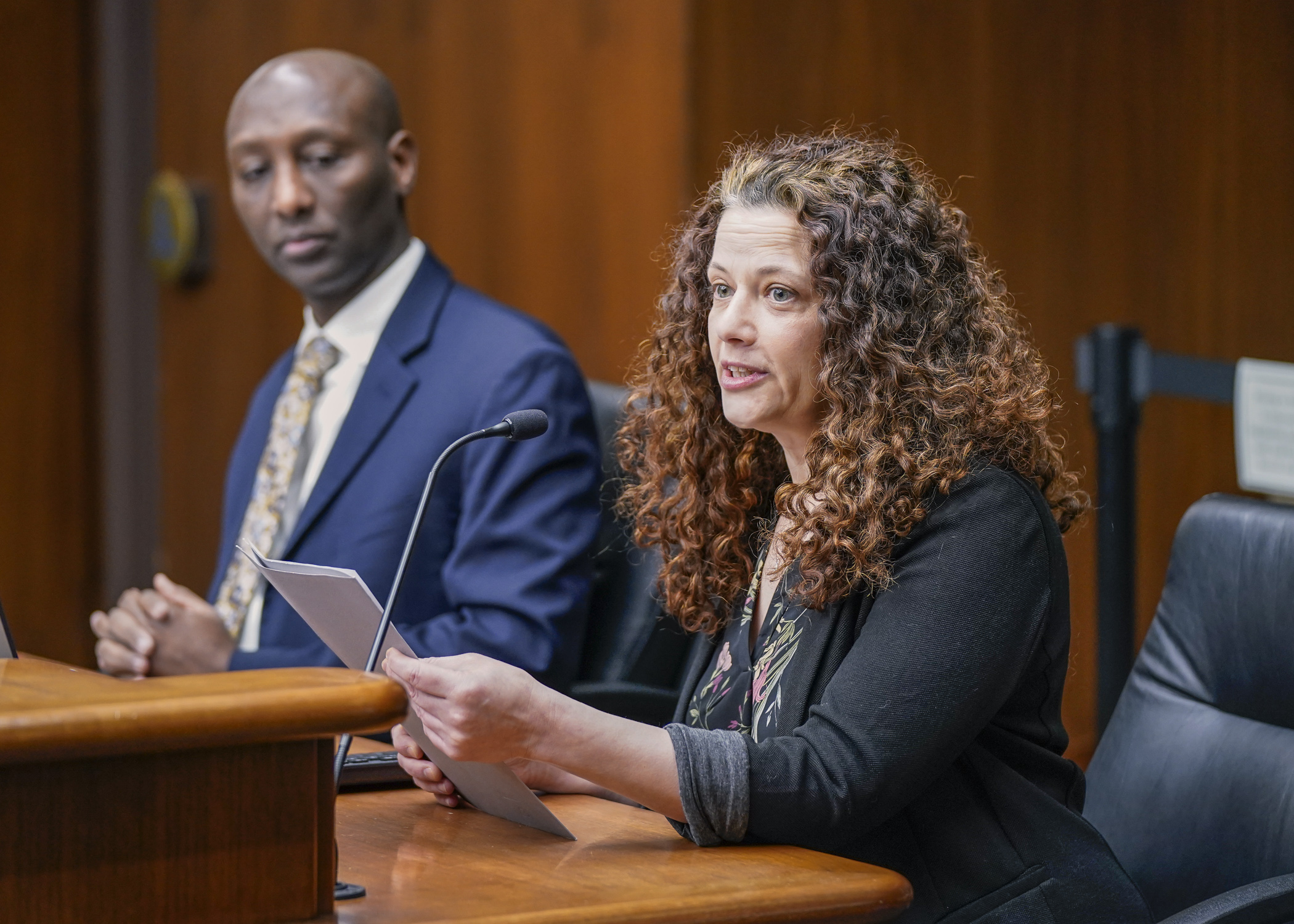House panel ponders elimination of Diversionary Work Program

Most low-income families seeking economic assistance from the state must first take part in a program meant to help them quickly find work. But experts, and now some lawmakers, say that program isn’t achieving its goals and should be eliminated.
Rep. Mohamud Noor (DFL-Mpls) sponsors HF466 that would do just that. The bill, as modified by a delete-all amendment, was laid over for possible omnibus bill inclusion by the House Children and Families Finance and Policy Committee Tuesday.
Noor told members that when the Minnesota Family Investment Program – which helps low-income families with children meet their basic needs while helping parents find work to achieve financial stability – was created, the Diversionary Work Program was also put in place as a stop-gap measure.
That is a four-month course meant to help parents find jobs quickly so they can avoid having to use MFIP, which usually has a lifetime eligibility limit of 60 months.
“Guess what? After 20 years there is nothing that has changed, meaning that most of the individuals who go through DWP will end up in MFIP one way or another within 12 months,” Noor said. “…We created more burden, we created more work for the staff, we created a system that does not work for anyone.”
The bill would also remove unnecessary barriers and simplify the process for participants and the staff who administer MFIP, he said. Those modifications include removing hardship sanctions, updating how benefits are calculated, and changing the requirement for income verification reports for those in the program from monthly to every six months.
Hennepin County Commissioner Jeffrey Lunde said the latter change would help families focus on finding new work, complete school or training programs, adding that data shows the diversion program doesn’t work.
“Less than 10% of Hennepin County families successfully complete DWP and the vast majority move on to MFIP,” Lunde said.
During a presentation on the programs last week, Department of Human Services officials said most families don’t rely on the benefits for long. Over 40% of new applicants use MFIP once for 12 months or less, and only about 7% of families have reached the 60-month time limit since the program began in 1998.
An average of 28,000 families per month participated in one of the programs in 2022, and 72% of the people receiving that assistance are children.
Committee members were generally receptive to the bill, although Rep. Brian Daniels (R-Faribault) questioned whether it “would incentivize people to be self-sufficient” and said he looked forward to ongoing conversations on the issue.
Related Articles
Search Session Daily
Advanced Search OptionsPriority Dailies
Speaker Emerita Melissa Hortman, husband killed in attack
By HPIS Staff House Speaker Emerita Melissa Hortman (DFL-Brooklyn Park) and her husband, Mark, were fatally shot in their home early Saturday morning.
Gov. Tim Walz announced the news dur...
House Speaker Emerita Melissa Hortman (DFL-Brooklyn Park) and her husband, Mark, were fatally shot in their home early Saturday morning.
Gov. Tim Walz announced the news dur...
Lawmakers deliver budget bills to governor's desk in one-day special session
By Mike Cook About that talk of needing all 21 hours left in a legislative day to complete a special session?
House members were more than up to the challenge Monday. Beginning at 10 a.m...
About that talk of needing all 21 hours left in a legislative day to complete a special session?
House members were more than up to the challenge Monday. Beginning at 10 a.m...